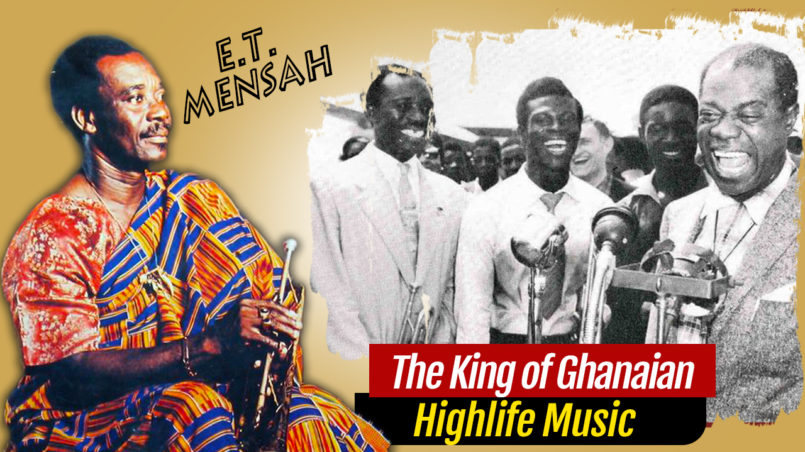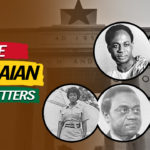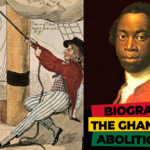Introduction
Ghanaian music boasts a vibrant history and has given rise to numerous renowned artistes who have made a significant impact on the industry. Some of the most notable figures include Osibisa, AB Crentsil, E.T Mensah, Nana Ampadu, Amakye Dede, and many others. These musicians have played a vital role in the growth and spread of Ghanaian music and continue to inspire the current generation of musicians.
In today’s video, we take a glimpse at the life of Emmanuel Tetteh Mensah, also known as ET Mensah, the renowned musician hailed as the “King of Highlife.”
Born on May 31, 1919, in Accra, E.T began his education at James Town Elementary School. There, he developed his musical talents by learning to play the piccolo and joining the Accra Orchestra, a youth band led by Joe Lamptey in the 1930s. Lamptey, the headmaster of the school, was a prominent figure in one of Ghana’s earliest dance orchestras, the Jazz Kings, which was formed in the early 1920s.
E.T Mensah also gained expertise in playing the alto-saxophone and played with various musical groups, such as the Accra High School Orchestra, the Accra Rhythm Orchestra, and the Kumasi Philharmonic Orchestra during the 1930s and 1940s.
Alongside his older brother Yeboah, he formed the Accra Rhythmic Orchestra, which claimed victory in the 1939 Lambeth Walk Dance Competition at King George Memorial Hall, now known as Parliament House.
During World War II, American and British troops were stationed in Accra Ghana and they formed dance combos with local musicians. Amongst them was the Black and White Spots led by Sergeant Jack Leopard, a Scottish musician who was a professional saxophonist in England before coming to Ghana. He recruited E. T. Mensah as a saxophonist into his band in 1940.
In 1947, E. T. joined the Tempos, another group formed by the European troops. After the war, the Europeans left, and the band became entirely African with Joe Kelly as the leader, followed by Guy Warren, also known as Kofi Ghanaba and then E. T. Mensah in 1948. It was a seven-piece band, with E. T. playing both trumpet and sax, Joe on tenor sax, and Guy on drums. The Tempos made several trips to Nigeria starting in the 1950s, and they were always greeted with rave reception.
The Tempos signed a recording contract with Decca Records, which helped them gain international recognition. In 1957, E.T Mensah performed with Louis Armstrong during the celebration of Ghana’s independence. The band also expanded their reach to other West African cities, visiting Abidjan in 1955 and touring Guinea, Sierra Leone, and Liberia in 1958 and 1959. E.T Mensah also co-starred on a successful album with Nigerian trumpeter Dr. Victor Abimbola Olaiya.
E. T. Mensah and his band The Tempos had many recordings, mostly on Decca, which helped to popularize highlife music. However, in the 1960s the form of highlife as rendered by the pioneers changed but E. T. enjoyed a bit of a comeback in the mid-eighties when he played in Britain and Holland. In 1975, at the National Arts Festival, the Arts Council of Ghana honored E.T. Mensah with a stool, recognizing him as the “King of Highlife.” He was elected as the first president of the Musicians Union of Ghana (MUSIGA) in 1980. He was officially honored with the title “Okunini” which means a famous man for his contribution to the country’s culture. He was also awarded an honorary doctorate.
Unfortunately, E.T Mensah passed away on July 1996 at the age of 77.


